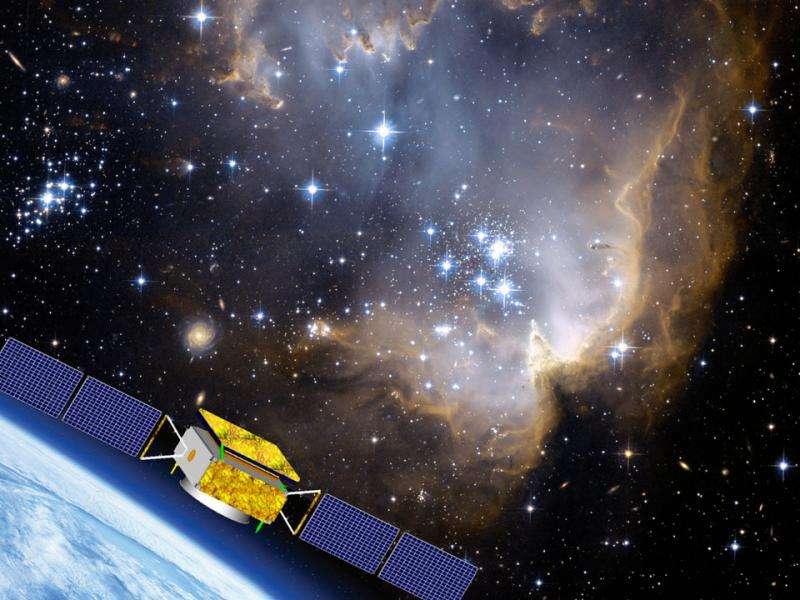December 18, 2015 weblog
China launches dark matter detecting satellite into orbit

China has successfully placed a satellite called the Dark Matter Particle Explorer (DAMPE) into a sun-synchronous orbit around the Earth. Its mission is to study high-energy particles and γ-rays as part of an overall objective to learn more about dark matter. The satellite was boosted into the sky by a Chinese Long March 2D rocket, launched from a northwest province in China.
The satellite, nicknamed "Wukong" (Monkey King) by the Chinese public is part of a collaborative effort between China's Academy of Sciences, several academic institutions in Italy, and the University of Geneva—its launch marks a major advance for the country into the study of space science, from space. The satellite has four sensors onboard: a BGO calorimeter, a silicon-Tungsten Tracker a neutron detector and a plastic scintillator detector. Each is part of the overall goal to capture high energy particles and then to trace them back to their origin, which the team believes would be dark matter particle collisions. The sensors have been designed to detect photons and electrons with a higher resolution than can be found by testers residing in underground sensor facilities or the AMS aboard the International Space Station. Tracking dark matter back to its source, the team believes, should shed some light on dark matter itself, which continues to defy observation despite many efforts across the globe. One focused mission by the team working with data from DAMPE will be to see if the new satellite can be used to reveal the source of signals seen by AMS, such as if they are caused by pulsars or dark matter collisions.
The DAMPE mission is the first of five space science missions the Chinese have developed—two more will take place next year–one of which is being billed as the first quantum-communications satellite (its purpose is to see if photons sent from ground stations to the satellite can continue to be entangled with their Earthbound counterparts, which, if so, could eventually lead to a quantum network.) The other mission will have the Chinese sending an X-ray telescope into orbit with unique energy band sensing capabilities—it will be used mostly to study radiation emitted from black holes. Director of the National Space Science Center, Wu Ji, told the press that the country is embarking on the new space science missions to seek further progress in the field.
More information: dpnc.unige.ch/dampe/
© 2015 Phys.org




















